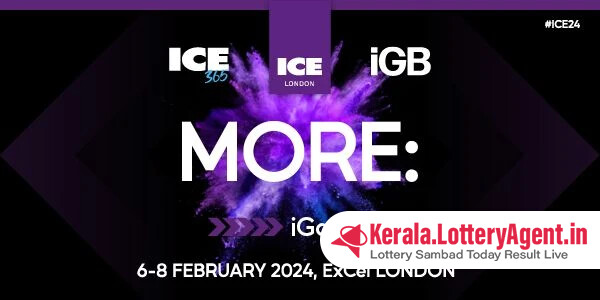
The path leading to ICE London 2024 has been marked by a series of pivotal evolutions in the international iGaming sector. The unveiling of the UK government’s white paper detailing revisions to the 2005 Gambling Act was a significant but understated turning point for the industry in April of this year. Despite the anticipation built up by multiple delays and successive changes in government leadership, when the final document landed, it did so without the expected fanfare—the industry had, in large part, anticipated many of the proposed changes, leaving little room for surprise.
The white paper aimed at replacing “analogue legislation for the digital age” proposed reforms with implications for the iGaming sphere. However, the industry is not likely to feel the immediate impact as the proposed measures from the document are subject to a series of ongoing consultations. It is in these discussions where complexities might arise, particularly regarding stake limits for online slots. A consultation slated to commence in July could potentially introduce limits ranging from £2 to £15 per spin, based on the chosen route by policymakers. The government is considering a uniform ceiling across the board as it would be quicker to implement and is mulling over imposing even stricter limits for the vulnerable 18-24 age group.
The rationale behind focusing on online slots is underscored by data from the National Gambling Treatment Service indicating a significant increase—over 20 percentage points—in the number of slot players seeking treatment between 2015/16 and 2021/22. These revelations could translate into substantial reductions in gross gaming yield for the industry, with estimates varying widely depending on the chosen stake limit—ranging from a minimal impact of £16.1m to a staggering £413.5m should a strict £2 limit be enforced. Operators could experience a corresponding surge in operational expenses, potentially up to £10m per entity.
In a similar vein, Germany, under the guidance of its new gambling regulator, the Gemeinsame Glücksspielbehörde der Länder (GGL), has started to exert full control over its sports betting and iGaming markets, only to be confronted with sizable regulatory challenges. The introduction of a €1 per spin stake limit on slots and a 5.3% tax on both slots and online poker stakes, while initially appearing to offer a structured framework, quickly revealed tensions. The German sports betting association voiced concerns, indicating an uptick in black market engagement—a worrying trend that seemed to cast doubt on the optimism projected by GGL officials.
The discrepancies between the regulator’s positivity and the industry’s pessimism on the German legal betting market have sparked a verbal tussle, particularly following claims that the vast majority of bets were placed through legal channels. These figures were challenged by industry voices who questioned the veracity of such statistics and highlighted the potentially much larger size of the black market than official estimates.
The situation faced by the operator Rootz encapsulates the ongoing struggles. The precipitous decline in both player deposits and gross gaming revenue since the enforcement of the State Treaty terms points to a worrying trend where players seem to be shunning regulated sites in favor of alternative options. This development is alarming, especially considering recent warnings from health officials regarding gambling-related harm among slot players, coupled with a study showing a stark divide between traffic to regulated online spaces and unlicensed platforms.
As ICE London 2024 looms on the horizon, it becomes clear that while there’s a robust desire for iGaming among consumers, significant obstacles exist, creating an environment where off-shore operators appear to be reaping the benefits. ICE VOX will host a session that delves into these very issues, providing a space for stakeholders to dissect and deliberate on the post-white paper reality of Great Britain’s iGaming landscape. With the industry at a crossroads, the event offers an invaluable opportunity for participants to engage, strategize, and navigate the complexities of a rapidly changing regulatory framework. Registration for ICE London, scheduled for 6-8 February 2024, is now open—mark your calendars to ensure you’re part of the conversation.












